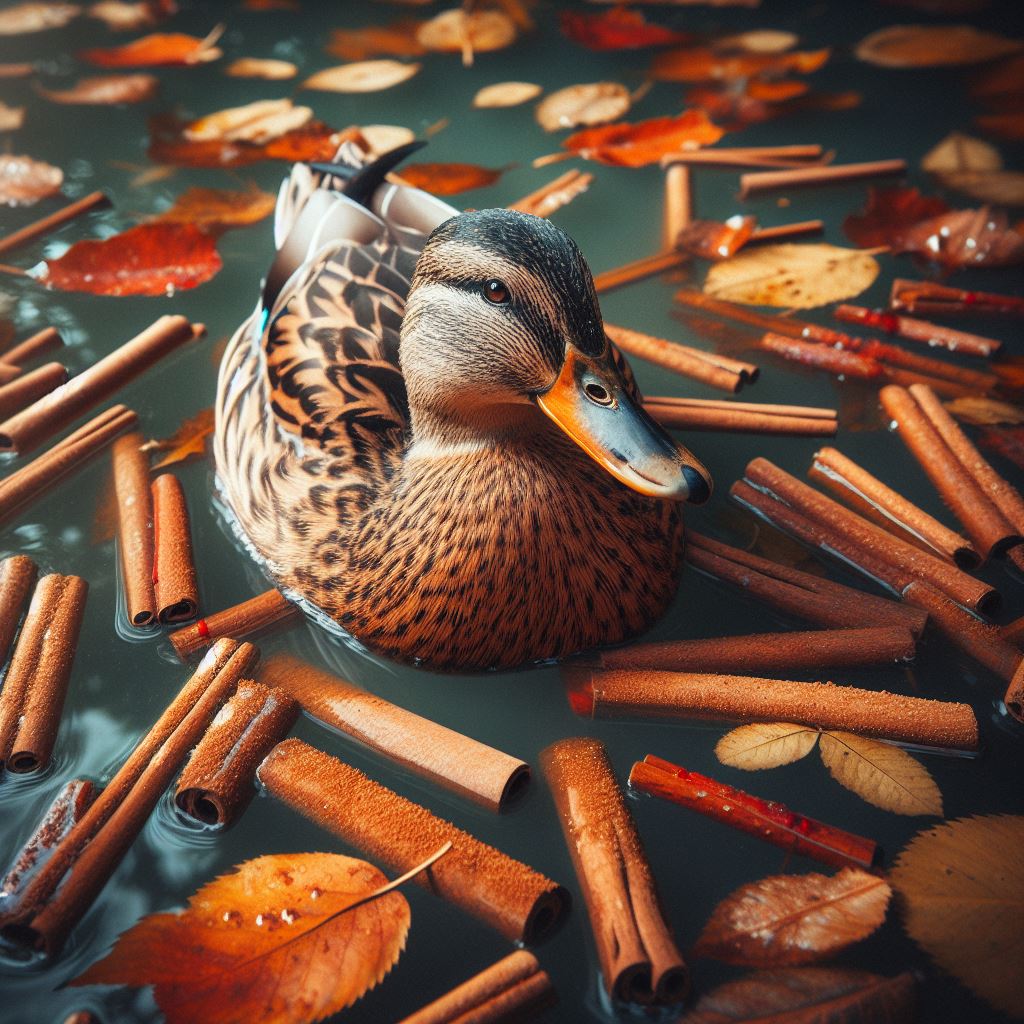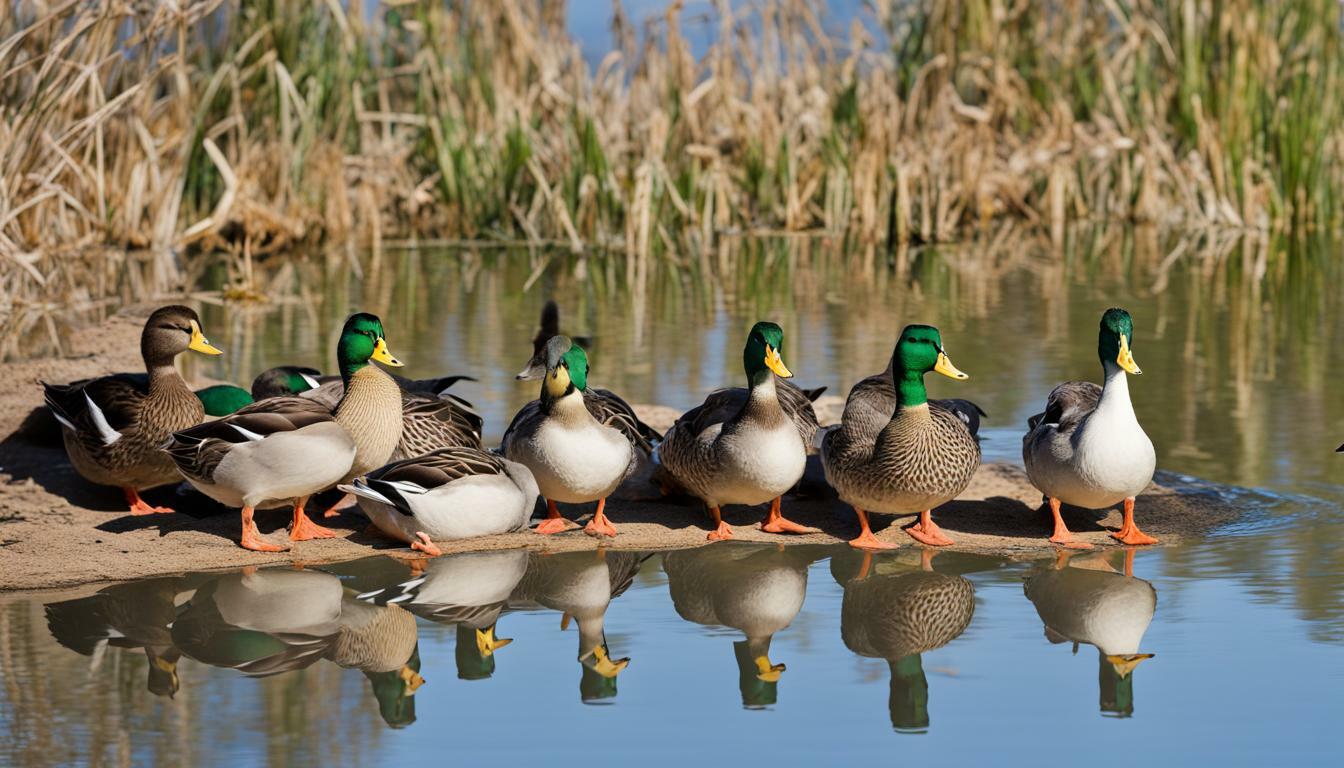Can Ducks Get Fleas? Explore the Truth Behind the Myth!

Table of content:
Ducks make for unique and enjoyable pets, but like any animal, they can suffer from pesky parasites like fleas. As a duck owner, it’s important to understand how ducks get fleas, how to identify an infestation, and how to properly treat your duck’s fleas.
How Do Ducks Get Fleas?
Fleas are common external parasites that live off the blood of their hosts. They infest not only dogs and cats, but also livestock, wild animals, and birds too. Ducks can get fleas in a few different ways:
- From wild animals – Fleas from foxes, raccoons, rodents, and other wildlife can jump onto ducks when they come into contact. This is a common issue for free-range ducks.
- From other livestock – If kept with other animals like chickens, goats, etc. fleas can spread between the different species.
- From bedding – Flea eggs and larvae can live in wood shavings, hay, and other bedding materials. Bringing in contaminated bedding is a source of flea infestations.
- From flea-infested environments – If ducks are kept in an area rife with fleas, like a barn, they are likely to get bitten and develop an infestation.
- Carried on humans – Fleas can inadvertently be brought in on your clothing and transferred to your ducks.
In most cases, fleas get onto ducks the same way they get on dogs and cats. Through contact with other infested animals and flea-ridden environments. Their thick protective feathers likely make them less susceptible than pets with fur, but they can still become parasitized.
What Are the Symptoms of Fleas in Ducks?
Detecting a flea problem in ducks can be tricky since they groom and preen their feathers constantly. But there are a few signs that may indicate your duck has fleas:
- Excessive preening – Ducks preen daily to clean and maintain their feathers. But excessive, constant preening can signal irritation from fleas.
- Ruffled, messy feathers – Flea infestations can prevent ducks from preening properly. Their feathers may appear unkempt, scruffy, and ruffled.
- Reddened skin – You may see red bumps or irritation on the skin if fleas have been biting. Check around the eyes, under wings, and underside.
- Small black debris – Flea dirt, or excrement, may accumulate on feathers. It appears as tiny black specks similar to coarse pepper.
- Anemia – Significant blood loss from flea bites can cause anemia, making ducks weak, lethargic, and pale.
- Itching/rubbing – Ducks may shake, scratch, and rub against objects in response to flea irritation.
If your duck displays several of these signs, inspect them thoroughly for evidence of fleas like dirt or bugs in their feathers. A veterinarian can also diagnose a flea issue through a skin evaluation. Catching an infestation early optimizes treatment success.
How Do You Treat Fleas on Ducks?
Treating flea infestations in ducks centers on thoroughly cleaning their environment and using an appropriate insecticide on the duck and their living space. Here are the steps to get rid of duck fleas:
1. Bathe the Duck
Bathing your duck with a flea shampoo for birds dislodges fleas and kills any remaining on their body. Allow the shampoo to soak for 5-10 minutes before rinsing. Be sure to carefully dry your duck afterward.
2. Treat Housing and Bedding
Remove all old bedding and sanitize the duck house or coop. Apply a flea powder or spray approved for poultry to all corners, crevices, walls, and floors where fleas could hide. Replace the bedding with clean, fresh material.
3. Apply Flea Prevention
Flea collars, sprays, powders, and spot-on treatments made specifically for poultry can continue killing fleas on your duck after bathing. Use these products according to label instructions for maximum effectiveness and safety.
4. Treat Surrounding Environment
Eliminate fleas from areas where your ducks roam and graze using sprays, powders, or foggers. Treat under porches, in vegetation, and anywhere ducks frequent. This prevents reinfestation after their initial treatment.
5. Change Feeding Habits
To deny fleas a blood meal, keep ducks enclosed for 1-2 weeks and feed them confined rather than allowing free-range grazing. Fleas eventually die without a host.
With vigilance and proper treatment, duck owners can eliminate parasitic fleas and keep their pets healthy and happy. Consult your veterinarian if infestations persist. They can recommend additional targeted flea control options for stubborn cases.
Can Wild Ducks Get Fleas?
Wild ducks face the threat of flea infestations, especially mallard ducks that inhabit areas near dogs, farm animals, and urban wildlife where fleas thrive. Their constant exposure to flea-infested environments makes them prone to infestations.
Signs of fleas in wild ducks include:
- Excessive preening and scratching
- Ruffled, unkempt feathers
- Pale eyes and skin indicating anemia
- Flea dirt on feathers
- Scabs and wounds from excessive pecking and biting at fleas
Severe flea infestations can negatively impact wild ducks by:
- Causing anemia from blood loss, weakening ducks
- Preventing them from properly preening and waterproofing feathers
- Introducing tapeworms that live in flea larvae
- Distracting ducks from finding food, nesting, and caring for ducklings
Wild ducks don’t receive flea treatment like domestic ducks. But their frequent swimming helps drown and dislodge fleas on their bodies. Their best defense against fleas is to avoid infested areas and maintain good condition through proper food sources and aquatic habitat.
Do Duck Eggs Carry Fleas?
Duck eggs do not carry fleas. The flea life cycle depends on a warm-blooded animal host and cannot be sustained inside a duck egg.
However, flea eggs and larvae can be found in duck nesting areas and bedding materials. A duck flea infestation can spread to their nests. But the eggs themselves remain flea-free as duck embryos develop inside their protective shells.
So duck owners and breeders should not worry about fleas hatching from clean, intact duck eggs or infesting developing ducklings before hatching. But they should monitor nests for signs of fleas like debris or ducks excessively preening in nest boxes. Infested bedding should be removed and replaced to prevent newly hatched ducklings from immediate flea exposure.
With good nest hygiene and flea prevention on parent ducks, owners can hatch out flea-free ducklings. Checking eggs during candling and hatching can further put duck breeders at ease that their eggs and babies are flea-free.
Are Fleas on Ducks Dangerous?
A small number of fleas on an otherwise healthy duck is not cause for alarm. But heavily infested ducks can suffer from health issues and diseases. Here are some of the dangers of duck fleas:
- Anemia – Significant blood loss leads to anemia. Young, old, or compromised ducks are most vulnerable.
- Weakness – Without adequate red blood cells, ducks become lethargic and weak. This makes them prone to predators.
- Tapeworms – Fleas transmit tapeworm eggs into ducks, which burrow into their intestines.
- Flea Allergy Dermatitis – Some ducks develop an allergy, causing severe itching, feather plucking, and skin infections.
- Disease – Fleas can spread bacterial, viral, and fungal infections between ducks and other species.
- Nest Abandonment – Infested nests drive ducks away, causing loss of eggs and ducklings.
Causing discomfort, nesting issues, and disease transmission, fleas can certainly threaten duck health and wellbeing if not controlled. Be vigilant for flea populations and take prompt action at the first signs of infestation. Consult a vet for guidance managing severe flea issues.
Can Baby Ducks Get Fleas From Their Mother?
Baby ducklings can absolutely get fleas from a parent duck harboring an active infestation. Parent ducks carrying fleas in their feathers can transfer them to eggs, nesting material, ducklings during brooding, and the surrounding environment.
Newly hatched ducklings are highly vulnerable because:
- Their immune systems are still developing, making them prone to flea-borne diseases.
- Their feathers are not fully grown in to protect their skin from biting fleas.
- They have a high surface area to body mass ratio, meaning more skin exposure for fleas to attack.
- Anemia from flea bites quickly can seriously affect their tiny bodies.
To protect newborn ducklings, it is critical to treat parent ducks for fleas thoroughly before nesting season. Their housing, nest boxes, and eggs should also be treated or disinfected prior to hatching.
Delaying flea treatment until after ducklings hatch makes them much more likely to succumb to a severe infestation transmitted from their flea-infested mother. Monitoring adult ducks and eggs closely before hatching and promptly treating any developing flea issue minimizes risks to delicate ducklings.
Final Thoughts
Ducks can and do suffer from flea infestations that require swift treatment. Being able to identify fleas in ducks, treat them safely, and halt environmental re-exposure is key to protecting your duck’s health and welfare. With an attentive owner taking proper precautions, ducks can live free of irritating fleas and the dangers they bring. Be proactive about periodic inspection and prevention to keep your ducks happy both in and out of the water.
Welcome. I’m Adreena Shanum, the proud owner of this website, and I am incredibly passionate about animals, especially poultry. I founded adreenapets.com as a labor of love, stemming from my desire to share my knowledge and experiences with poultry enthusiasts worldwide.




